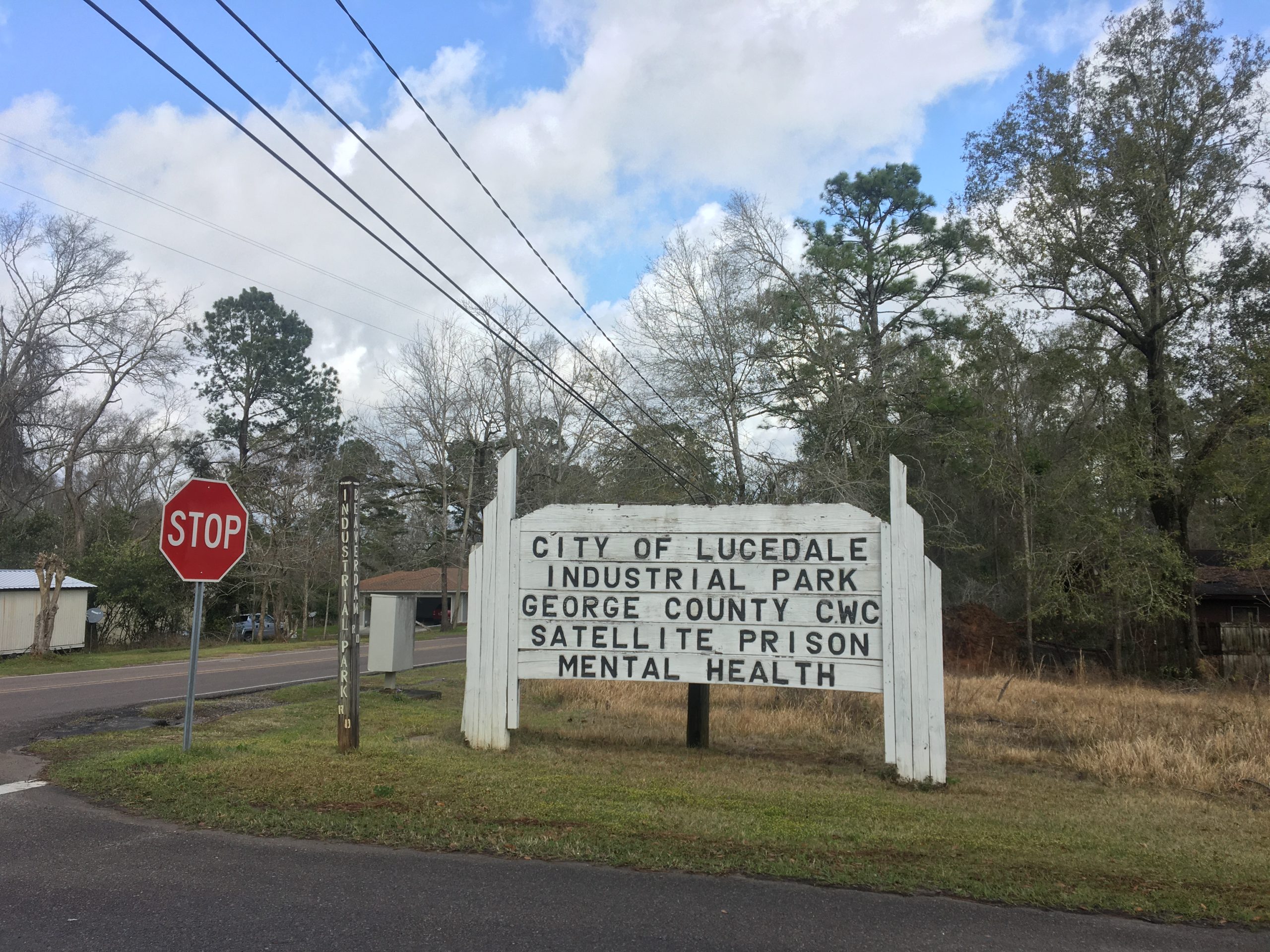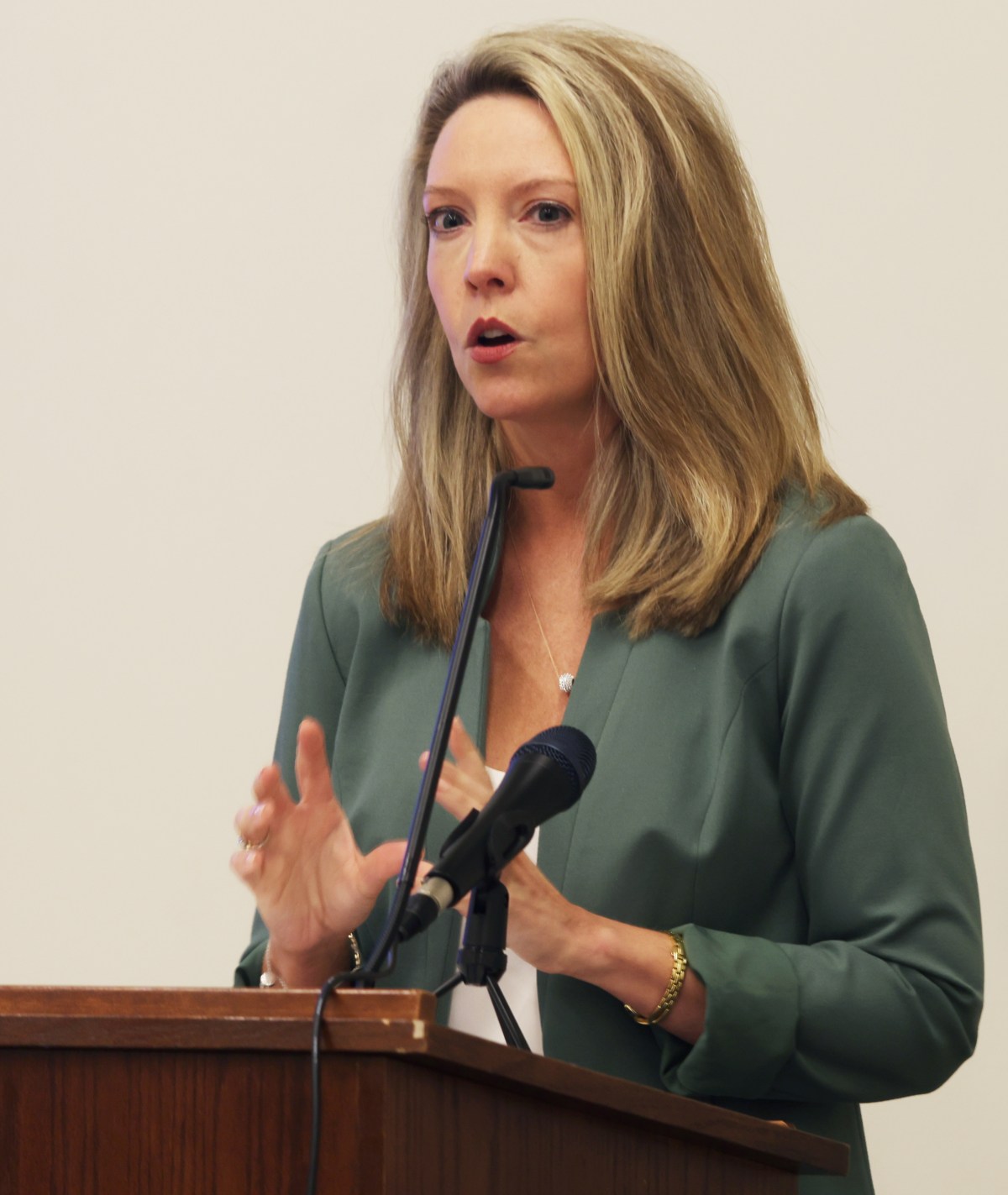Mississippi Today
Mississippi’s troubled mental health system shows signs of repair, report says

Mississippi’s troubled mental health system shows signs of repair, report says
Fewer Mississippians in mental health crises are stuck waiting in jail cells for a hospital bed each day than they were a year ago, but the state has yet to eliminate the troubling practice completely, according to a new report.
The latest data available shows that from December to mid-January, an average of 23 people in crisis waited for a hospital bed each day. Eight of those waited in jail, despite not being charged with any crime.
Those numbers were much higher not long ago: In the first quarter of this fiscal year, which started in July, an average of 72 people waited for a bed with 24 in a jail cell each day. Similar numbers had been reported for the prior fiscal year.
“The scope of progress is substantial,” wrote Dr. Michael Hogan, the author of a court-mandated biannual report on the state of Mississippi’s mental health system. “But the work is not complete, and some conditions remain that should satisfy no one.”
Hogan’s report comes as the result of a 2016 lawsuit filed against the state by the U.S. Department of Justice. A judge sided with the federal government in 2019, finding the state had violated the Americans with Disabilities Act by separating people with mental illness in hospitals from their homes and families. Hogan, a former New York State Commissioner on Mental Health, is now tasked with writing the twice-yearly reports on the state’s compliance with the lawsuit’s consent agreement as a court monitor.
Ultimately, the report found DMH was compliant or in partial compliance with all key issues pointed out in the agreement.

“The Mississippi system could fairly be described as the most unbalanced state system in terms of preferences for institutional care in the country,” Hogan wrote, referring to alarming issues in patient care first documented by the DOJ in 2011. “As this report is being written, a decade of attention means this imbalance in care has been substantially addressed.”
Late in 2022, DMH reopened a 30-bed unit at East Mississippi State Hospital that had been closed because of staffing shortages. A closed 20-bed unit at Mississippi State Hospital was reopened in January. The added beds contributed to keeping people with mental illness out of jail cells.
Patient counts that the department supplied to Mississippi Today show the number of people waiting in jail for a state hospital bed has been steadily declining for months.
“This is not a small undertaking and is due to the unwavering dedication of an incredible team of staff at DMH Central Office, the four state hospitals, and community mental health centers who strive daily to improve the state’s system of care,” the department’s Executive Director Wendy Bailey told Mississippi Today in a statement, “and to state leaders and legislators who are supporting and funding the efforts.”
The latest report, the third ever, was published this week and charted much of the Mississippi’s Department of Mental Health’s progress in care access across the state. However, lingering staffing retention troubles, data collection and use, patient outreach and communication issues, and jail stays remain sore points in need of improvement, according to Hogan’s report.
When community mental health centers were created 40 years ago – each with their own designated region – they operated with little oversight from the DMH, which focused on running state hospitals. As a result, statewide mental health care was often disjointed or inconsistent.
Hogan’s report studied discharge documentation to better understand how often patients across the state were getting intervention to lessen the likelihood they hit a severe crisis point again requiring inpatient treatment.
While entering inpatient treatment can help stabilize severe mental illness, it doesn’t cure it, Hogan points out. Follow ups are needed to prevent relapses and readmission. Hogan and his team found that community mental health centers contacted a hospitalized client, while the individual was in the hospital, at a rate of 45%.
He said “lukewarm success” in establishing relationships while people are still hospitalized makes impacts whether they attend a follow-up appointment after discharge. The overview found that initial visits were completed in 59 of 89 incidents they could track – about 66%. The rate of follow-up and engagement efforts were adequate in 56 of 87 cases they could track – or 64%.
“Some Regions do a good job on some elements and all do a good job some of the time,” Hogan wrote. “But consistency is lacking.”
Workers like peer support specialists who help contact patients after discharge are often paid at or below what a fast food worker can make, Hogan pointed out. The staffing shortages among these roles were higher than that of other vacancies, such as registered nurses and therapists.
Bailey acknowledged the same hardships but hopes average annual salaries for those support staff positions reach $30,000 by fiscal year 2025. The department has asked the legislature for more funding to help raise wages and improve retention rates.
“We are not only dealing with competition from the private sector, we are dealing with burnout from staff dealing with patients who require 24/7 care who have significant mental and behavioral challenges,” Bailey said in her statement.
Hogan’s first report, issued in March, described Mississippians sometimes waiting weeks in jail for a bed at a state hospital. He also found that some people admitted to state hospitals did not have a serious mental illness – meaning the hospital wasn’t the right place for them and they were occupying a bed that could have been used by someone else.
In his second report, he surveyed North Mississippi State Hospital and community mental health centers in the northern part of the state and did not find patients admitted without a serious mental illness diagnosis.
Bailey said that DMH expects to also see more positive results from people now working as court liaisons who help staff identify community treatment options. The department has also grown programs that provide transitional housing, supported employment and community outreach over the last several years.
Recently the agency began fidelity monitoring, or progress monitoring, of its mobile crisis teams, another positive step Hogan recognized.
“Are there improvements still to be made?” Bailey posed, reflecting on state’s mental health system. “Yes.”
“Has progress been accomplished? Absolutely.”
This article first appeared on Mississippi Today and is republished here under a Creative Commons license.
Mississippi Today
1964: Mississippi Freedom Democratic Party was formed
April 26, 1964

Civil rights activists started the Mississippi Freedom Democratic Party to challenge the state’s all-white regular delegation to the Democratic National Convention.
The regulars had already adopted this resolution: “We oppose, condemn and deplore the Civil Rights Act of 1964 … We believe in separation of the races in all phases of our society. It is our belief that the separation of the races is necessary for the peace and tranquility of all the people of Mississippi, and the continuing good relationship which has existed over the years.”
In reality, Black Mississippians had been victims of intimidation, harassment and violence for daring to try and vote as well as laws passed to disenfranchise them. As a result, by 1964, only 6% of Black Mississippians were permitted to vote. A year earlier, activists had run a mock election in which thousands of Black Mississippians showed they would vote if given an opportunity.
In August 1964, the Freedom Party decided to challenge the all-white delegation, saying they had been illegally elected in a segregated process and had no intention of supporting President Lyndon B. Johnson in the November election.
The prediction proved true, with white Mississippi Democrats overwhelmingly supporting Republican candidate Barry Goldwater, who opposed the Civil Rights Act. While the activists fell short of replacing the regulars, their courageous stand led to changes in both parties.
This article first appeared on Mississippi Today and is republished here under a Creative Commons Attribution-NoDerivatives 4.0 International License.![]()
Mississippi Today
Mississippi River flooding Vicksburg, expected to crest on Monday
Warren County Emergency Management Director John Elfer said Friday floodwaters from the Mississippi River, which have reached homes in and around Vicksburg, will likely persist until early May. Elfer estimated there areabout 15 to 20 roads underwater in the area.
“We’re about half a foot (on the river gauge) from a major flood,” he said. “But we don’t think it’s going to be like in 2011, so we can kind of manage this.”
The National Weather projects the river to crest at 49.5 feet on Monday, making it the highest peak at the Vicksburg gauge since 2020. Elfer said some residents in north Vicksburg — including at the Ford Subdivision as well as near Chickasaw Road and Hutson Street — are having to take boats to get home, adding that those who live on the unprotected side of the levee are generally prepared for flooding.



“There are a few (inundated homes), but we’ve mitigated a lot of them,” he said. “Some of the structures have been torn down or raised. There are a few people that still live on the wet side of the levee, but they kind of know what to expect. So we’re not too concerned with that.”
The river first reached flood stage in the city — 43 feet — on April 14. State officials closed Highway 465, which connects the Eagle Lake community just north of Vicksburg to Highway 61, last Friday.

Elfer said the areas impacted are mostly residential and he didn’t believe any businesses have been affected, emphasizing that downtown Vicksburg is still safe for visitors. He said Warren County has worked with the U.S. Army Corps of Engineers and the Mississippi Emergency Management Agency to secure pumps and barriers.
“Everybody thus far has been very cooperative,” he said. “We continue to tell people stay out of the flood areas, don’t drive around barricades and don’t drive around road close signs. Not only is it illegal, it’s dangerous.”
NWS projects the river to stay at flood stage in Vicksburg until May 6. The river reached its record crest of 57.1 feet in 2011.




This article first appeared on Mississippi Today and is republished here under a Creative Commons Attribution-NoDerivatives 4.0 International License.![]()
Mississippi Today
With domestic violence law, victims ‘will be a number with a purpose,’ mother says
Joslin Napier. Carlos Collins. Bailey Mae Reed.
They are among Mississippi domestic violence homicide victims whose family members carried their photos as the governor signed a bill that will establish a board to study such deaths and how to prevent them.
Tara Gandy, who lost her daughter Napier in Waynesboro in 2022, said it’s a moment she plans to tell her 5-year-old grandson about when he is old enough. Napier’s presence, in spirit, at the bill signing can be another way for her grandson to feel proud of his mother.
“(The board) will allow for my daughter and those who have already lost their lives to domestic violence … to no longer be just a number,” Gandy said. “They will be a number with a purpose.”
Family members at the April 15 private bill signing included Ashla Hudson, whose son Collins, died last year in Jackson. Grandparents Mary and Charles Reed and brother Colby Kernell attended the event in honor of Bailey Mae Reed, who died in Oxford in 2023.
Joining them were staff and board members from the Mississippi Coalition Against Domestic Violence, the statewide group that supports shelters and advocated for the passage of Senate Bill 2886 to form a Domestic Violence Facility Review Board.
The law will go into effect July 1, and the coalition hopes to partner with elected officials who will make recommendations for members to serve on the board. The coalition wants to see appointees who have frontline experience with domestic violence survivors, said Luis Montgomery, public policy specialist for the coalition.
A spokesperson from Gov. Tate Reeves’ office did not respond to a request for comment Friday.
Establishment of the board would make Mississippi the 45th state to review domestic violence fatalities.
Montgomery has worked on passing a review board bill since December 2023. After an unsuccessful effort in 2024, the coalition worked to build support and educate people about the need for such a board.
In the recent legislative session, there were House and Senate versions of the bill that unanimously passed their respective chambers. Authors of the bills are from both political parties.
The review board is tasked with reviewing a variety of documents to learn about the lead up and circumstances in which people died in domestic violence-related fatalities, near fatalities and suicides – records that can include police records, court documents, medical records and more.
From each review, trends will emerge and that information can be used for the board to make recommendations to lawmakers about how to prevent domestic violence deaths.
“This is coming at a really great time because we can really get proactive,” Montgomery said.
Without a board and data collection, advocates say it is difficult to know how many people have died or been injured in domestic-violence related incidents.
A Mississippi Today analysis found at least 300 people, including victims, abusers and collateral victims, died from domestic violence between 2020 and 2024. That analysis came from reviewing local news stories, the Gun Violence Archive, the National Gun Violence Memorial, law enforcement reports and court documents.
Some recent cases the board could review are the deaths of Collins, Napier and Reed.
In court records, prosecutors wrote that Napier, 24, faced increased violence after ending a relationship with Chance Fabian Jones. She took action, including purchasing a firearm and filing for a protective order against Jones.
Jones’s trial is set for May 12 in Wayne County. His indictment for capital murder came on the first anniversary of her death, according to court records.
Collins, 25, worked as a nurse and was from Yazoo City. His ex-boyfriend Marcus Johnson has been indicted for capital murder and shooting into Collins’ apartment. Family members say Collins had filed several restraining orders against Johnson.
Johnson was denied bond and remains in jail. His trial is scheduled for July 28 in Hinds County.
He was a Jackson police officer for eight months in 2013. Johnson was separated from the department pending disciplinary action leading up to immediate termination, but he resigned before he was fired, Jackson police confirmed to local media.
Reed, 21, was born and raised in Michigan and moved to Water Valley to live with her grandparents and help care for her cousin, according to her obituary.
Kylan Jacques Phillips was charged with first degree murder for beating Reed, according to court records. In February, the court ordered him to undergo a mental evaluation to determine if he is competent to stand trial, according to court documents.
At the bill signing, Gandy said it was bittersweet and an honor to meet the families of other domestic violence homicide victims.
“We were there knowing we are not alone, we can travel this road together and hopefully find ways to prevent and bring more awareness about domestic violence,” she said.
This article first appeared on Mississippi Today and is republished here under a Creative Commons Attribution-NoDerivatives 4.0 International License.
-

 News from the South - Florida News Feed6 days ago
News from the South - Florida News Feed6 days agoJim talks with Rep. Robert Andrade about his investigation into the Hope Florida Foundation
-

 News from the South - Alabama News Feed5 days ago
News from the South - Alabama News Feed5 days agoPrayer Vigil Held for Ronald Dumas Jr., Family Continues to Pray for His Return | April 21, 2025 | N
-

 Mississippi Today5 days ago
Mississippi Today5 days ago‘Trainwreck on the horizon’: The costly pains of Mississippi’s small water and sewer systems
-

 News from the South - Florida News Feed4 days ago
News from the South - Florida News Feed4 days agoTrump touts manufacturing while undercutting state efforts to help factories
-

 News from the South - Texas News Feed5 days ago
News from the South - Texas News Feed5 days agoMeteorologist Chita Craft is tracking a Severe Thunderstorm Warning that's in effect now
-

 News from the South - Florida News Feed4 days ago
News from the South - Florida News Feed4 days agoFederal report due on Lumbee Tribe of North Carolina’s path to recognition as a tribal nation
-

 News from the South - Arkansas News Feed6 days ago
News from the South - Arkansas News Feed6 days agoAs country grows more polarized, America needs unity, the ‘Oklahoma Standard,’ Bill Clinton says
-

 News from the South - Virginia News Feed5 days ago
News from the South - Virginia News Feed5 days agoTaking video of military bases using drones could be outlawed | Virginia














































